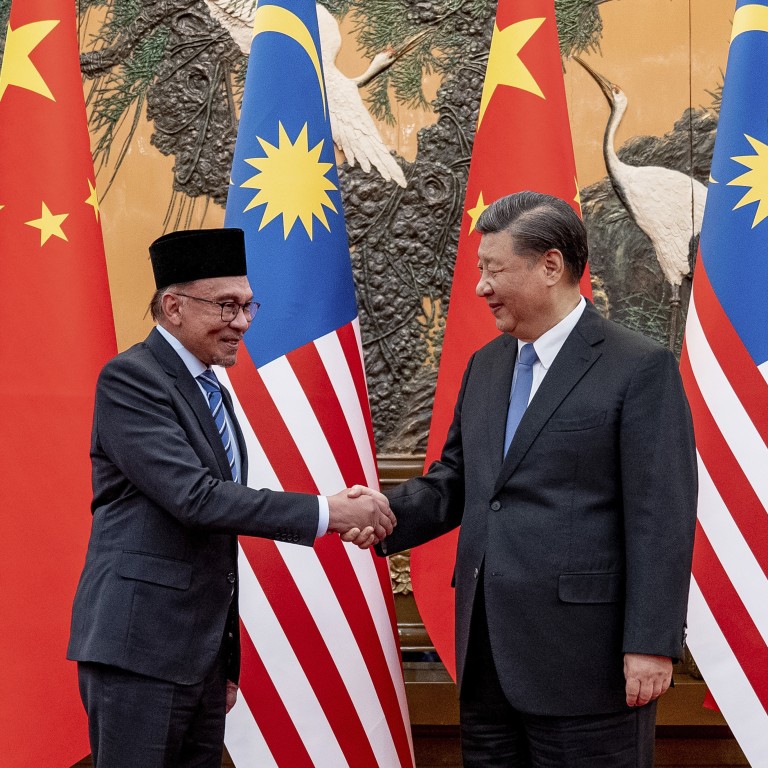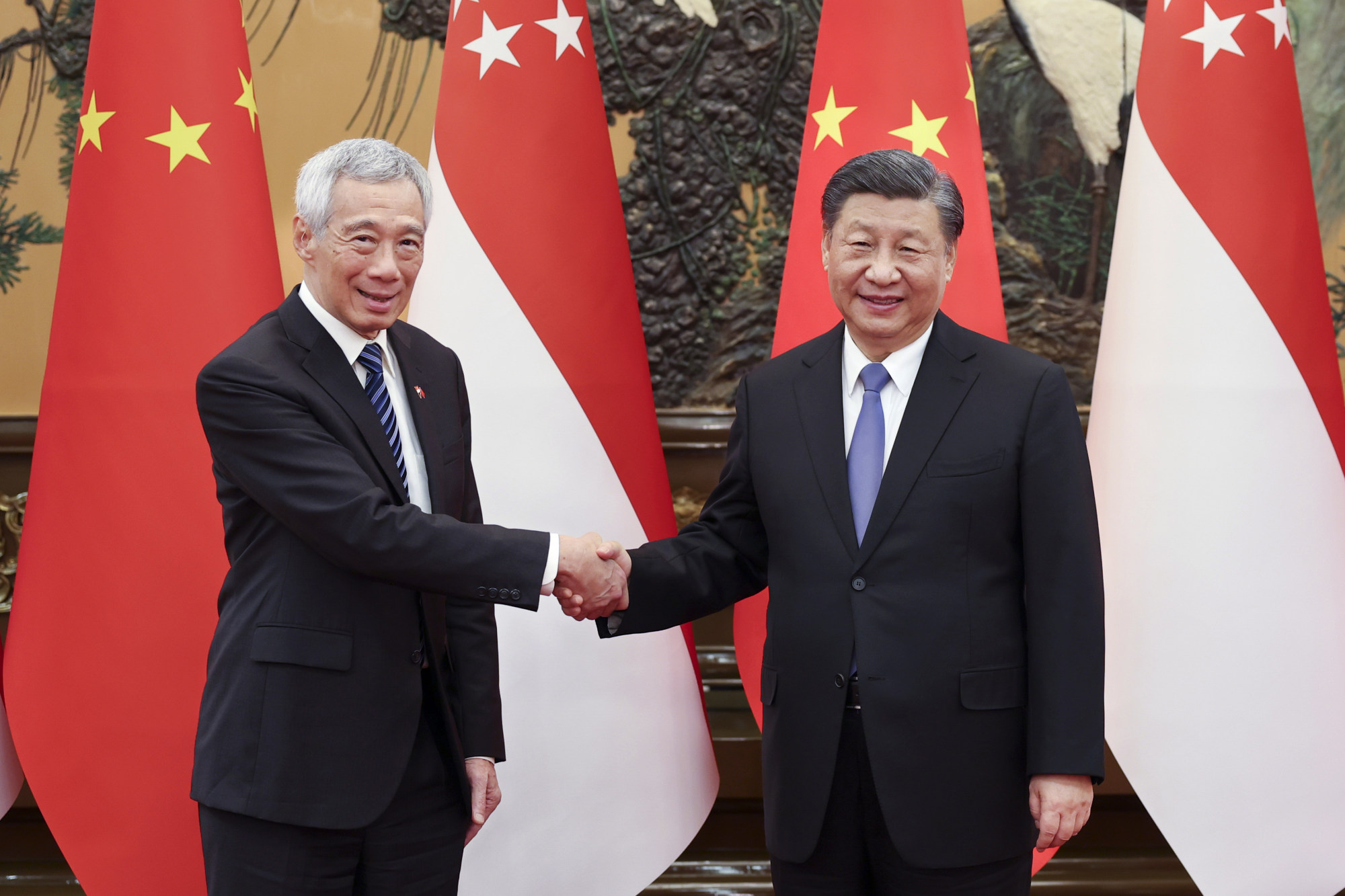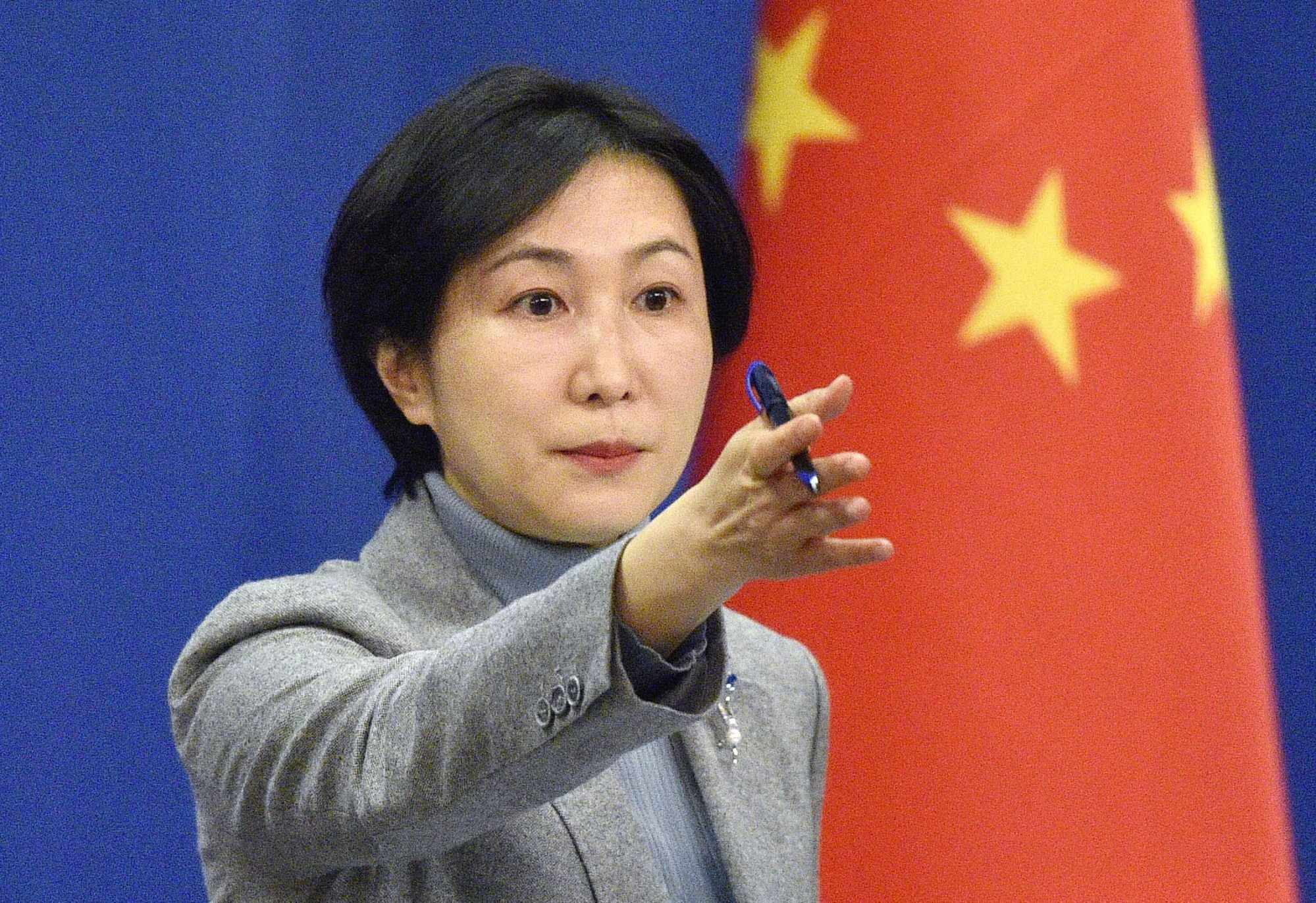
Beijing signals importance of neighbours amid ‘growing weariness’ from the West
- The leaders of Singapore and Malaysia both visited China last week in trips seen as showing ‘positivity in relations’
- Beijing might be convinced to ‘smooth over potential rough spots’ so region remains receptive to its initiatives, analyst says
The outcomes of China trips by two Southeast Asian leaders signal the region’s growing importance to Beijing and that it could be willing to “smooth over potential rough spots” amid tensions with the West, observers say.

Chinese foreign ministry spokeswoman Mao Ning on Monday said the visits “opened a new chapter” in China’s ties with the two countries.
She said Xi and Anwar’s announcement on building a “China-Malaysia community with a shared future” was the “right step at the right time” and the “most important political outcome” of the visit.
Chong Ja Ian, an associate professor of political science at the National University of Singapore, said the visits were significant as they demonstrated China’s continued efforts to reach out in the region.
He said that while the substantive results appeared incremental and were focused on economic cooperation, the meetings between the two leaders and Xi showed some “positivity in relations”.
Thomas Daniel, a senior fellow at the Institute of Strategic and International Studies Malaysia, echoed that view.
Europe ‘counting on China’ to end Russia’s war in Ukraine, Xi told
“As an immediate neighbour to Southeast Asia, China will naturally prioritise its bilateral and multilateral relationships, especially in the face of growing weariness from the West,” he said.
“This might convince Beijing to smooth over potential rough spots with the region to ensure that Southeast Asia remains receptive to its initiatives.”
Asked about the negotiations on Monday, Chinese foreign ministry spokeswoman Mao said only that China was “committed to handling disputes in an appropriate manner through communication and consultation”.
Daniel – describing Anwar as a “man on a mission” for his first official visit to China since he took office – noted that the Malaysian leader’s objectives were “largely met”.
Anwar secured significant investment commitments and gave a rare glimpse into his foreign policy thinking, stressing the need for good relations not just with China but also with the United States and other world powers.
“This is quintessential Malaysian hedging but also a statement of fact,” Daniel said.
Experts warn Philippines should stay neutral in US-China rift or be ‘crushed’
“Malaysia has benefited from good relationships with both major powers and is interested in doing all it can in partnering with other like-minded countries to mitigate the adverse effects of increasingly zero-sum calculations in both Beijing and Washington.”
Chong similarly suggested that China would likely place greater importance on its neighbours as competition with the US intensified.
In his address, Singapore’s Lee said he hoped China and the US would “succeed in stabilising their relationship and establishing mutual trust and respect, to cooperate in areas where their interests are aligned”.
“Big powers have a heavy responsibility to maintain stable and workable relations with one another because any clash between them will have grievous consequences for themselves and the world,” he said.
Like Beijing, Washington has sought to foster closer ties with Southeast Asian countries in recent months, including the Philippines, with which it expanded a defence pact that gives American troops access to additional bases.

Chong said countries could face pressure even as they try to strike a balance between the two world powers since “not choosing sides could be seen as helping the other side or as duplicity”.
“Southeast Asian states may find efforts to encourage Washington and Beijing to get along fall increasingly on deaf ears,” he said.
“[Countries] may find themselves better off by paying more attention to considering ways to buffer themselves against rising friction than hoping for a resolution to US-China differences any time soon.”
But for Singapore and Malaysia at least there is a “high degree of independence from the sort of ‘with or against me’ expectations from either Beijing or Washington”, according to Zha from Peking University.
“It would be too simplistic to envision either China or the US as the diplomatic locomotive of separate trains – and, on a collision course – with countries in the rest of Asia on them,” he said.

